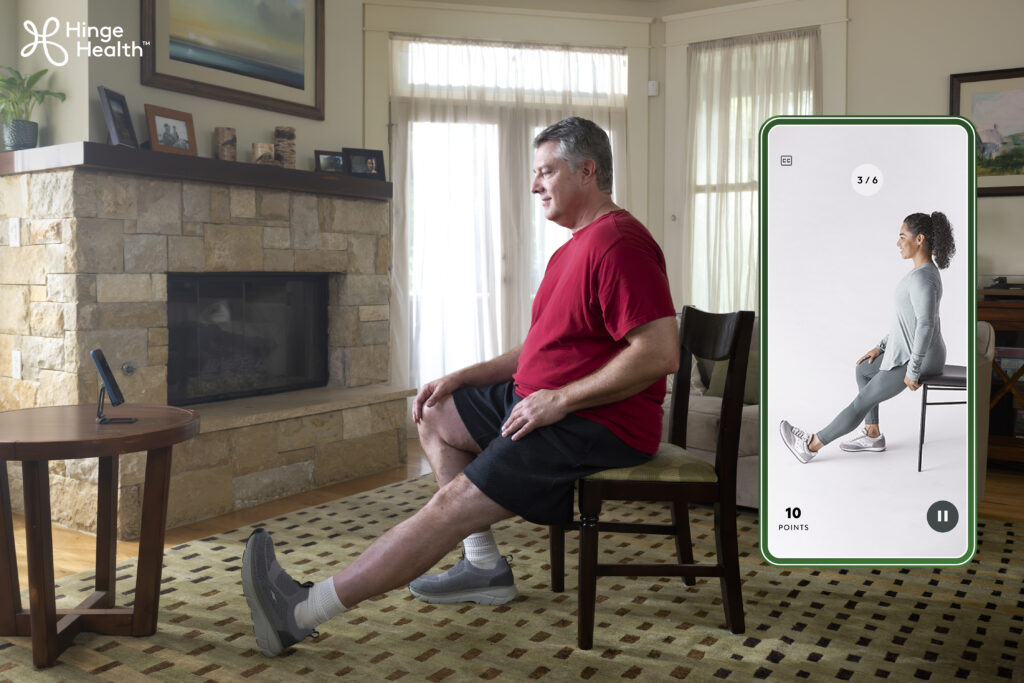Hinge Health, a digital healthcare company based in San Francisco, has debuted with an initial public offering (IPO) that raised $437.3 million. The IPO involved the sale of 13.7 million shares priced at $32 each, with about 8.52 million shares sold by Hinge Health itself and the remaining by existing investors.
The stock debuted on the New York Stock Exchange (NYSE) on May 22 under the symbol HNGE, where it rose 17% from its IPO price of $32 to close at $37.56 on its debut day, despite dipping slightly from its opening price of $39.25.
Current Share Price:
The IPO arrives at a time when the digital health IPO market has been relatively quiet.
Founded in 2014 by Daniel Perez and Gabriel Mecklenburg, Hinge Health was inspired by their own experiences with musculoskeletal (MSK) injuries. Both founders faced lengthy rehabilitation periods after personal injuries, fueling their drive to improve how joint and muscle health care is delivered.
Related: Basel Medical Group IPO Raises $8.82M, Opens Doors to Orthopedic and Neurosurgical Care
At the core of Hinge Health’s platform is an integration of AI with human expertise, paired with advanced wearable technology.
The company’s FDA-cleared Enso device is a small, lightweight wearable that delivers non-addictive, non-invasive electrical nerve stimulation for pain relief. Designed for patients in too much pain to begin exercise therapy, Enso is integrated into care plans for high-risk members. Backed by two randomized controlled trials, Enso has shown greater pain relief outcomes than traditional transcutaneous electrical nerve stimulation (TENS) devices or exercise therapy alone.
Complementing Enso is TrueMotion, Hinge Health’s AI-powered motion tracking technology. Alongside a virtual care team, it enables members to follow personalized exercise therapy programs remotely. This model helps eliminate common barriers to physical therapy and offers a scalable alternative to surgery.
HingeConnect, the company’s proprietary AI-driven database, identifies high-risk members who may benefit from interventions like Enso and adjusts care accordingly.
According to the company, this AI-enabled platform — combining Enso, TrueMotion and care team support — has reduced the human care hours required for physical therapy by about 95%, helping improve patient adherence while lowering employer healthcare costs.
As of 2025, Hinge Health serves more than 2,250 clients — including nearly half of the Fortune 100 — and has supported over 1 million members.
While the IPO valued the company at approximately $2.6 billion, down from its $6.2 billion private market valuation in 2021, Hinge Health remains focused on expansion. Its roadmap includes growing its specialized women’s pelvic health programs — which address the underserved needs of women at various life stages — and international expansion.
The company launched in Canada in 2024 and plans to enter Europe in 2025.
Research has supported the potential of AI in pain medicine. A recent Pain Medicine review outlined how AI and machine learning can enhance diagnosis, predict treatment responses and personalize neuromodulation therapies.
In April, an NIH-funded clinical trial showed that an AI screening tool for opioid use disorder was as effective as physician-led assessments, while reducing 30-day readmissions by nearly 50% and saving an estimated $109,000 over eight months.
Two other companies have also recently spotlighted their AI-powered platforms.
Academy Medtech Ventures’ Move PT, launched in late 2024, analyzes patient movements in real time, uses AI to tailor exercise programs and provides actionable insights for clinicians. It integrates with electronic medical records (EMRs) such as EPIC, features a patented Exercise Editor and supports gait lab assessments using computer vision.
Meanwhile, Raintree Systems launched ScribeIQ, the first AI-centric EMR scribe solution tailored to rehab therapy. Built on the AI engine from its Yoomi Health acquisition, ScribeIQ enables rapid onboarding, accurate transcription and ambient noise reduction optimized for therapy environments.
Overall, these developments reflect an uphill trend of AI reshaping pain and mobility care across clinical settings.
If you want your company to be featured on Xtalks.com, please email [email protected].












Join or login to leave a comment
JOIN LOGIN